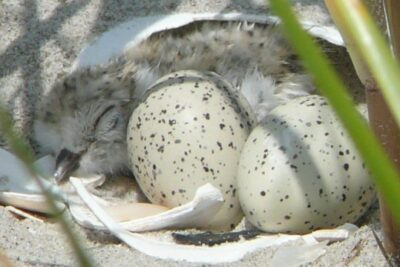
Can Succulent Fertilizer Also Benefit Other Plants?

When it comes to caring for plants, providing them with the right nutrients is crucial for their growth and overall health. One popular type of plant that has gained a lot of attention in recent years is succulents. Known for their ability to store water in their leaves and stems, succulents have become a favorite among both experienced and novice gardeners. One important aspect of succulent care is the use of fertilizer, which helps provide them with the necessary nutrients to thrive. But can succulent fertilizer also benefit other plants?
We will explore the topic of using succulent fertilizer on other types of plants. We will discuss the basic principles of plant nutrition and how different plants have varying nutrient requirements. We will also examine the components of succulent fertilizer and whether they can be beneficial for other plant species. Additionally, we will provide some practical tips and recommendations for using succulent fertilizer on non-succulent plants. By the end of this article, you will have a better understanding of whether succulent fertilizer can be used to promote the growth and health of other plants in your garden.
- Yes, succulent fertilizer can also benefit other plants
- Succulent fertilizer contains nutrients that are beneficial to various types of plants
- The nutrients in succulent fertilizer can promote healthy growth in other plants
- Other plants can benefit from the balanced formula of succulent fertilizer
- Using succulent fertilizer on other plants can improve their overall health and appearance
- Succulent fertilizer can provide essential nutrients that may be lacking in other plants
- Applying succulent fertilizer to other plants can help them thrive and flourish
- The nutrients in succulent fertilizer can enhance the root development of other plants
- Other plants can benefit from the organic ingredients found in succulent fertilizer
- Succulent fertilizer can improve the soil quality for other plants, leading to better growth
Yes, succulent fertilizer can also benefit other plants
Many people believe that succulent fertilizer is only suitable for succulent plants. However, this is a common misconception. Succulent fertilizer can actually benefit other types of plants as well.
Why is succulent fertilizer beneficial for other plants?
Succulent fertilizer is typically high in nutrients that are essential for plant growth, such as nitrogen, phosphorus, and potassium. These nutrients are not exclusive to succulent plants; they are required by most plants for healthy development.
By using succulent fertilizer on other plants, you can provide them with the necessary nutrients they need to thrive. This can result in stronger stems, greener leaves, and increased flower production.
How to use succulent fertilizer on other plants
When using succulent fertilizer on other plants, it is important to follow the instructions provided by the manufacturer. Typically, you will dilute the fertilizer with water and apply it to the soil around the plant.
 Can Bearded Dragons Safely Consume Succulents as Part of Their Diet?
Can Bearded Dragons Safely Consume Succulents as Part of Their Diet?It is important to note that different plants have different nutrient requirements. Therefore, it is recommended to do some research on the specific plants you want to fertilize and adjust the dosage accordingly. Over-fertilizing can be harmful to plants, so it is better to start with a smaller amount and gradually increase if necessary.
Plants that can benefit from succulent fertilizer
While succulent fertilizer can benefit a variety of plants, some plants that particularly respond well to succulent fertilizer include:
- Cacti and other succulent plants
- Tomatoes
- Roses
- Orchids
- Herbs such as basil, mint, and rosemary
These plants can greatly benefit from the nutrient-rich formula of succulent fertilizer and show improved growth and health when properly fertilized.
Don't limit succulent fertilizer to just succulent plants. By using it on a variety of plants, you can promote their growth and overall health. Just remember to follow the instructions, adjust the dosage according to the plant's needs, and enjoy the benefits of using succulent fertilizer on a wider range of plants.
Succulent fertilizer contains nutrients that are beneficial to various types of plants
Introduction
When it comes to caring for our plants, we often search for the best ways to provide them with the necessary nutrients. Succulent fertilizer, commonly used to nourish succulent plants, has gained popularity in recent years. But did you know that succulent fertilizer can also benefit other types of plants? In this article, we will explore the nutrients present in succulent fertilizer and how they can positively impact various plants.
The Nutrients in Succulent Fertilizer
Succulent fertilizer typically contains a balanced blend of essential nutrients that are necessary for plant growth. These nutrients include:
- Nitrogen (N): Nitrogen promotes healthy leaf and stem growth, aiding in the overall development of plants.
- Phosphorus (P): Phosphorus is crucial for root development and flowering in plants.
- Potassium (K): Potassium helps plants in building strong cell walls and enhances their resistance to diseases.
Benefits for Other Plants
While succulent fertilizer is specifically formulated for succulent plants, the nutrients it contains can also benefit other types of plants. Here are some of the ways in which succulent fertilizer can positively impact different plants:
 Do Succulents Actually Cleanse and Freshen Indoor Air?
Do Succulents Actually Cleanse and Freshen Indoor Air?- Enhanced Growth and Development: The balanced blend of nutrients in succulent fertilizer provides plants with the necessary elements to thrive. This can lead to improved growth, healthier foliage, and stronger roots.
- Increased Flowering: The presence of phosphorus in succulent fertilizer promotes flower production in various plants. If you have flowering plants in your garden, using succulent fertilizer can help enhance their blooming potential.
- Improved Disease Resistance: Potassium, found in succulent fertilizer, plays a vital role in strengthening the cell walls of plants. As a result, plants become more resistant to diseases and pests, helping them stay healthier for longer.
Considerations for Application
Although succulent fertilizer can benefit other plants, it is essential to consider a few factors before applying it to your garden:
- Plant Compatibility: While succulent fertilizer can be beneficial, some plants may have specific nutrient requirements that differ from those found in succulent fertilizer. Research the nutrient needs of your plants to ensure compatibility.
- Dilution and Application: Succulent fertilizer should be diluted according to the instructions provided by the manufacturer. Applying it in excessive amounts can lead to nutrient burn and harm your plants.
- Timing: Follow the recommended application schedule for succulent fertilizer. Applying it during the appropriate growing season can maximize its benefits.
Succulent fertilizer contains a blend of nutrients that can benefit various types of plants. Its balanced ratio of nitrogen, phosphorus, and potassium contributes to enhanced growth, increased flowering, and improved disease resistance. However, it is crucial to consider the specific needs of your plants and follow proper application guidelines to ensure optimal results. Give your plants the nourishment they deserve with succulent fertilizer, and watch them flourish.
The nutrients in succulent fertilizer can promote healthy growth in other plants
Many gardeners are familiar with using succulent fertilizer to nourish their beloved succulent plants. However, what some may not realize is that the nutrients found in succulent fertilizer can also benefit other types of plants. Whether you have flowering plants, vegetables, or herbs in your garden, incorporating succulent fertilizer into your routine can promote healthy growth and enhance their overall well-being.
The benefits of succulent fertilizer for other plants
Succulent fertilizer typically contains a well-balanced blend of essential nutrients such as nitrogen, phosphorus, and potassium. These nutrients are vital for plant growth and play a crucial role in various plant functions.
Nitrogen: A primary nutrient required for leaf and stem development. It helps plants produce chlorophyll, which is essential for photosynthesis and overall plant health.
Phosphorus: Promotes root development, flowering, and fruit production. It aids in the transfer of energy throughout the plant and is crucial for overall plant growth and vitality.
 Exploring the Symbolic Meanings of Giving Succulent Plants as Gifts
Exploring the Symbolic Meanings of Giving Succulent Plants as GiftsPotassium: Essential for overall plant health, potassium helps regulate water uptake and retention in plants. It also contributes to disease resistance and improves the plant's ability to withstand environmental stressors.
When other plants receive the benefits of succulent fertilizer, they can experience improved nutrient uptake, enhanced root development, and increased resistance to diseases and pests. This, in turn, leads to stronger and healthier plants that are more likely to thrive in your garden.
How to use succulent fertilizer for other plants
Using succulent fertilizer for other plants is relatively straightforward. Here are some steps to follow:
- Choose a high-quality succulent fertilizer that contains a balanced ratio of nutrients.
- Read the instructions carefully and determine the appropriate dosage for the specific type of plant you are fertilizing.
- Apply the fertilizer according to the instructions, making sure to distribute it evenly around the base of the plant.
- Water the plant thoroughly after applying the fertilizer to help the nutrients penetrate the soil and reach the plant's roots.
- Repeat the fertilization process as recommended by the fertilizer manufacturer or as necessary for the specific plant's needs.
It's important to note that while succulent fertilizer can benefit other plants, it's always best to consider the specific needs and requirements of each plant species. Some plants may require different nutrient ratios or specific fertilizers tailored to their unique needs.
Using succulent fertilizer can have a positive impact on the growth and overall health of other plants in your garden. By providing essential nutrients, succulent fertilizer helps plants thrive and enhances their ability to withstand various environmental challenges. So, why not give it a try and see the difference it can make in your garden?
Other plants can benefit from the balanced formula of succulent fertilizer
When it comes to plant care, finding the right fertilizer is crucial for promoting healthy growth and vibrant blooms. While succulent fertilizer is designed specifically for these water-storing plants, it turns out that its benefits extend beyond just succulents.
 The Benefits of Succulents: Enhancing Your Home and Garden
The Benefits of Succulents: Enhancing Your Home and GardenOne of the main reasons why succulent fertilizer can benefit other plants is its balanced formula. Succulent fertilizers are typically formulated with a higher concentration of macronutrients like nitrogen, phosphorus, and potassium, which are essential for plant growth. These nutrients help plants develop strong root systems, produce more flowers, and resist diseases and pests.
The benefits of succulent fertilizer for other plants:
- Improved nutrient uptake: The balanced formula of succulent fertilizer provides a range of essential nutrients that can be easily absorbed by plant roots. This promotes overall plant health and enhances their ability to absorb water and nutrients from the soil.
- Enhanced growth and blooming: Just like succulents, other plants require an adequate supply of macronutrients to support their growth and flowering. By using succulent fertilizer, you can provide these plants with the nutrients they need to thrive and produce vibrant blooms.
- Increased disease resistance: The nutrients present in succulent fertilizer help strengthen the immune systems of plants, making them more resistant to common diseases and pests. By using this fertilizer on other plants, you can help protect them from potential threats and ensure their long-term health.
- Better root development: Succulent fertilizer contains nutrients that promote root growth and development. When applied to other plants, it can encourage the growth of strong and healthy root systems, leading to improved overall plant structure and stability.
It's important to note that while succulent fertilizer can benefit other plants, it's still essential to consider the specific needs of each plant species. Some plants may require different nutrient ratios or additional micronutrients that may not be present in succulent fertilizer. Therefore, it's always a good idea to research the specific requirements of your plants and choose a fertilizer accordingly.
While succulent fertilizer is designed for succulents, its balanced formula can also benefit other plants by promoting nutrient uptake, enhancing growth and blooming, increasing disease resistance, and improving root development. By using the right fertilizer, you can ensure the overall health and vitality of all your plants.
Using succulent fertilizer on other plants can improve their overall health and appearance
Many gardeners and plant enthusiasts have discovered that succulent fertilizer can actually benefit a wide range of plants, not just succulents. While succulent fertilizer is specifically formulated to meet the unique nutritional needs of these water-storing plants, its components can provide essential nutrients that are beneficial for other plant species as well.
1. Enhanced Nutrient Absorption
Succulent fertilizers often contain a balanced blend of macro and micronutrients, such as nitrogen, phosphorus, and potassium, which are essential for plant growth. When applied to other plants, these nutrients can be readily absorbed by their roots, promoting healthy development and improved overall growth.
2. Improved Soil Fertility
 Edible Potential of Succulents: Can You Eat These Trendy Plants?
Edible Potential of Succulents: Can You Eat These Trendy Plants?Succulent fertilizers are typically designed to improve soil fertility by replenishing essential minerals and organic matter. When used on other plants, these fertilizers can enrich the soil, creating a more favorable environment for root development and microbial activity. As a result, plants can access a greater pool of nutrients and experience more robust growth.
3. Increased Resistance to Stress
Succulent fertilizers often contain trace elements, such as iron, zinc, and manganese, which play crucial roles in plant metabolism and stress tolerance. When applied to other plants, these trace elements can enhance their ability to withstand environmental stressors, such as drought, heat, or disease. This can lead to healthier and more resilient plants.
4. Enhanced Flowering and Fruit Production
Succulent fertilizers typically contain higher levels of phosphorus, which is essential for promoting flower and fruit formation. When used on other plants, this increased phosphorus content can stimulate flowering and enhance fruit production, leading to more abundant blooms or a higher yield of fruits.
5. Convenient and Cost-Effective Solution
Using succulent fertilizer on other plants can be a practical choice for many gardeners. It eliminates the need to purchase multiple types of fertilizers for different plant species, making it a cost-effective solution. Additionally, succulent fertilizers are often available in concentrated forms, allowing users to dilute them according to the specific needs of their plants.
 The Benefits of Using Coffee Grounds in Soil for Succulents
The Benefits of Using Coffee Grounds in Soil for SucculentsWhile succulent fertilizer is primarily formulated for succulents, its benefits extend beyond these plants. By using succulent fertilizer on other plants, gardeners can help improve their overall health, appearance, and productivity. So, don't hesitate to experiment and see how this specialized fertilizer can benefit your entire garden!
Succulent fertilizer can provide essential nutrients that may be lacking in other plants
When it comes to plant care, fertilization plays a crucial role in promoting healthy growth and vibrant blooms. While succulents are known for their low-maintenance nature and ability to thrive in arid conditions, many plant enthusiasts wonder if succulent fertilizer can also benefit other types of plants.
The answer is yes! Succulent fertilizer, with its unique blend of nutrients, can provide essential elements that may be lacking in other plants. Here are a few reasons why incorporating succulent fertilizer into your plant care routine can be beneficial for a wide range of plant species:
1. Balanced Nutrient Composition
Succulent fertilizers are specifically formulated to cater to the unique needs of these water-efficient plants. They typically contain a balanced blend of macronutrients, including nitrogen (N), phosphorus (P), and potassium (K), as well as micronutrients like iron, magnesium, and zinc. These nutrients are essential for plant growth and development, regardless of the plant species.
2. Improved Soil Fertility
Regularly using succulent fertilizer can help improve soil fertility. The nutrients in the fertilizer enrich the soil, making it more nutrient-dense and providing a favorable environment for plants to grow. This enhanced soil fertility benefits not only succulents but also other plants that share the same growing conditions.
3. Enhanced Root Development
Succulent fertilizer often contains ingredients that promote healthy root development, such as organic matter and beneficial microbes. Strong and well-developed roots are essential for nutrient uptake and overall plant health. By using succulent fertilizer, you can help other plants establish robust root systems, leading to improved growth and resilience.
 Succulent Photosynthesis: Oxygen-Producing Abilities Explored
Succulent Photosynthesis: Oxygen-Producing Abilities Explored4. Increased Flowering and Fruiting
Succulent fertilizer is designed to encourage blooming and fruit production in succulent plants. Similarly, other flowering and fruit-bearing plants can benefit from the nutrient boost provided by succulent fertilizer. The balanced nutrient composition of the fertilizer can stimulate flower formation and enhance the quality and quantity of blooms and fruits.
5. Easy Availability
Succulent fertilizers are widely available in garden centers, nurseries, and online stores. Their popularity among plant enthusiasts has made them easily accessible. So, if you already have succulent fertilizer on hand, there's no reason not to use it on your other plants.
Succulent fertilizer can indeed benefit other plants by providing a balanced nutrient composition, improving soil fertility, enhancing root development, promoting flowering and fruiting, and being easily available. So, don't hesitate to give your other plants a nutrient boost with succulent fertilizer and watch them thrive!
Applying succulent fertilizer to other plants can help them thrive and flourish
Many gardeners and plant enthusiasts are familiar with succulent fertilizer and its benefits for succulent plants. Succulent fertilizer is specifically designed to meet the nutritional needs of these unique plants, promoting healthy growth and vibrant colors. But what about other plants? Can succulent fertilizer also benefit them?
The answer is yes! While succulent fertilizer is formulated to cater to the specific requirements of succulents, its nutrient-rich composition can also provide a boost to other types of plants in your garden.
Why use succulent fertilizer on other plants?
One of the main reasons why succulent fertilizer can benefit other plants is its high concentration of essential nutrients. Succulents require a well-balanced blend of nutrients to thrive, including nitrogen, phosphorus, and potassium, along with trace elements like iron, magnesium, and calcium. These nutrients are not exclusive to succulents; they are also crucial for the overall health and development of many other plants.
 10 Profitable Ideas to Kickstart Your Succulent Business
10 Profitable Ideas to Kickstart Your Succulent BusinessBy applying succulent fertilizer to other plants, you are providing them with a nutrient boost that can enhance their growth, improve their resilience against diseases and pests, and enhance their overall appearance.
How to apply succulent fertilizer to other plants?
When using succulent fertilizer on other plants, it is important to follow the proper application guidelines to ensure optimal results. Here are some tips:
- Dilute the fertilizer: Succulent fertilizer is usually concentrated, so it is important to dilute it before applying it to other plants. Follow the instructions on the package to determine the appropriate dilution ratio.
- Apply during the growing season: It is best to apply succulent fertilizer to other plants during their active growing season, as this is when they have the highest nutrient requirements. Avoid applying fertilizer during periods of dormancy.
- Use the right amount: Avoid over-fertilizing your plants, as this can lead to nutrient imbalances and potential damage. Start with a small amount and gradually increase if necessary, based on the plant's response.
- Water thoroughly after application: After applying succulent fertilizer to other plants, make sure to water them thoroughly. This helps distribute the nutrients evenly and prevents any potential fertilizer burn.
The bottom line
Succulent fertilizer can indeed benefit other plants in your garden. Its nutrient-rich composition can provide a much-needed boost to their growth and overall health. Just remember to follow the proper application guidelines and use it in moderation. With the right care and attention, your other plants can thrive and flourish with the help of succulent fertilizer.
The nutrients in succulent fertilizer can enhance the root development of other plants
When it comes to plant care, one might assume that specific fertilizers are designed exclusively for certain types of plants. However, recent studies have shown that succulent fertilizer, which is typically used to nourish succulent plants, can also benefit the root development of other plants.
What makes succulent fertilizer unique?
Succulent fertilizer is specially formulated to provide the essential nutrients that succulent plants need to thrive. These plants are known for their ability to store water in their leaves, stems, or roots, making them highly adaptable to arid conditions. As a result, their fertilizer contains a higher concentration of certain nutrients that aid in water retention and promote healthy root growth.
 Can You Eat and Enjoy Shrek's Ears?
Can You Eat and Enjoy Shrek's Ears?How can succulent fertilizer benefit other plants?
The nutrients found in succulent fertilizer, such as nitrogen, phosphorus, and potassium, play a crucial role in the growth and development of plant roots. These nutrients are essential for promoting cell division, increasing root length and branching, and improving overall root health.
Enhancing root development
By applying succulent fertilizer to other plants, especially those with shallow or weak root systems, gardeners can help stimulate root growth and improve the plant's ability to absorb water and nutrients from the soil. The increased root development can lead to stronger, healthier plants that are more resistant to environmental stressors.
How to use succulent fertilizer on other plants
If you decide to use succulent fertilizer on other plants, it's important to follow the manufacturer's instructions for application rates and frequency. Generally, diluting the fertilizer with water and applying it to the soil around the plant's base is recommended. Be cautious not to over-fertilize, as excessive nutrients can harm plants.
Conclusion
 Can Succulents Improve Indoor Air Quality in Your Home?
Can Succulents Improve Indoor Air Quality in Your Home?While succulent fertilizer is primarily designed for succulent plants, its nutrient composition can benefit other plants as well. By promoting root development, succulent fertilizer can help improve the overall health and vitality of various plants in your garden. Just remember to use it in moderation and follow the instructions provided by the manufacturer.
Other plants can benefit from the organic ingredients found in succulent fertilizer
While succulent fertilizer is specifically formulated for the needs of succulent plants, the organic ingredients that it contains can also benefit other types of plants. Succulent fertilizers typically contain a balanced blend of nutrients that are essential for plant growth, such as nitrogen, phosphorus, and potassium.
One of the key benefits of using succulent fertilizer on other plants is the organic matter it provides. Organic matter helps improve the soil structure, allowing better water retention and nutrient absorption. This can benefit a wide range of plants, from flowering shrubs to leafy vegetables.
Additionally, succulent fertilizers often contain beneficial microorganisms such as mycorrhizal fungi. These fungi form a symbiotic relationship with plant roots, aiding in nutrient uptake and enhancing overall plant health. By introducing these microorganisms to other plants, you can improve their root development and increase their resistance to diseases and pests.
Furthermore, succulent fertilizers are typically slow-release formulas, which means that the nutrients are released gradually over time. This is particularly advantageous for plants that have a longer growing season or for those that require a steady supply of nutrients throughout their lifecycle.
While succulent fertilizer is designed for succulent plants, its organic ingredients and beneficial microorganisms can have positive effects on other types of plants as well. By incorporating succulent fertilizer into your gardening routine, you can promote healthier and more vibrant growth in a variety of plants.
Succulent fertilizer can improve the soil quality for other plants, leading to better growth
When it comes to plant care, fertilizing is an essential aspect that cannot be overlooked. While succulents have specific fertilizer requirements, you might be wondering if the same fertilizer can benefit other plants as well. The answer is a resounding yes!
Succulent fertilizer can improve the soil quality for other plants
Succulent fertilizers are specially formulated to provide the necessary nutrients that these unique plants need, such as nitrogen, phosphorus, and potassium. However, these nutrients are not exclusive to succulents; they are also crucial for the growth and development of other plants.
By using succulent fertilizer on other plants, you can enhance the soil quality by replenishing essential nutrients that may have been depleted over time. This improved soil quality creates a favorable environment for plant growth, ensuring that your other plants thrive just as well as your succulents.
Benefits of using succulent fertilizer on other plants
1. Promotes healthy root development: Succulent fertilizers contain micronutrients like zinc, copper, and iron, which are vital for root growth. When these nutrients are present in the soil, plants can develop strong and healthy root systems, allowing them to absorb water and nutrients more effectively.
2. Enhances overall plant growth: The balanced combination of nutrients in succulent fertilizers can stimulate overall plant growth. Nitrogen promotes lush foliage, phosphorus supports flower and fruit production, while potassium improves disease resistance and overall plant vigor.
3. Increases flowering and fruiting: Many plants require adequate levels of phosphorus to bloom and produce fruits. By using succulent fertilizer, which typically contains phosphorus, you can encourage abundant flowering and fruiting in your other plants.
4. Improves plant resilience: Succulent fertilizers often include organic matter and beneficial soil microbes, which can improve soil structure and increase microbial activity. This, in turn, enhances the plant's ability to resist diseases and withstand environmental stresses.
Conclusion
So, don't limit the use of your succulent fertilizer to succulents alone. Experiment with using it on other plants in your garden or indoor space, and you'll likely notice significant improvements in their growth and overall health. Just make sure to follow the recommended dosage and application instructions for each specific plant type, as different plants may have varying fertilizer requirements.
Frequently Asked Questions
1. Can Succulent Fertilizer Also Benefit Other Plants?
Yes, succulent fertilizer can also benefit other plants, but it may need to be diluted to avoid over-fertilization.
If you want to read more articles similar to Can Succulent Fertilizer Also Benefit Other Plants?, you can visit the Uses and Benefits category.






You Must Read